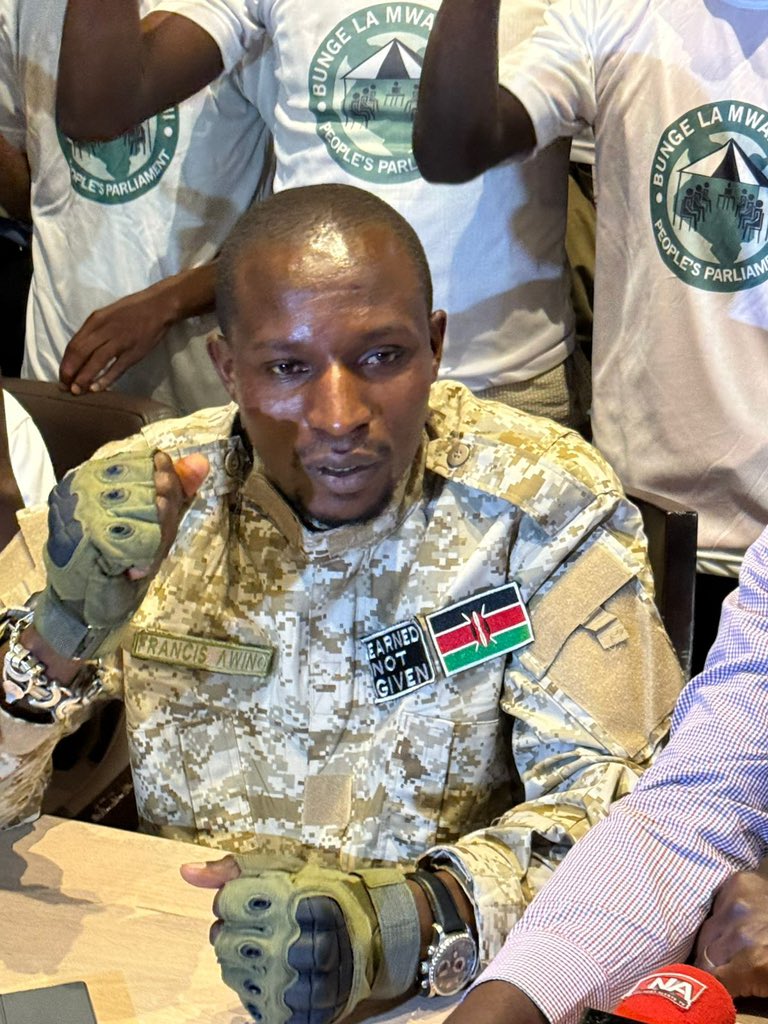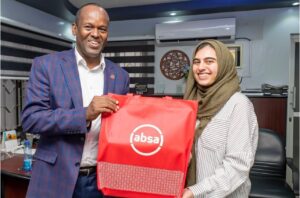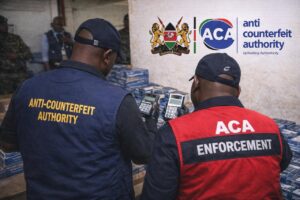Bunge la Mwananchi President Francis Awino has called for a peaceful protest ahead of the 35th Sabasaba celebrations tomorrow.
In his address to the Press today, Awino has urged business people across the Nairobi CBD to close their businesses to avoid looting by goons who he said are being organized by the government.
According to the Civil Society leader, the government will try to infiltrate peaceful protests with goons to make it look bad, yet the young people and everyone shall be coming out in celebration of the second liberators of the country.
“I urge all businesspeople to close their businesses to avoid losses and blame. We urge everyone who will come out tomorrow to do it peacefully. We know the government will try to infiltrate the protest with goons, but we have already decided to be in the streets tomorrow. If you cannot come out, please watch us in the media as we try to express ourselves and what we want for our country,” he stated.
Awino has emphasized that Sabasaba celebrations are for everyone because Kenya is not moving in the right direction, and that everyone needs to be out in the streets to champion good governance.
“Sabasaba is an important day not just to Bunge la Mwananchi and the youth, but every member of the society and everyone in Kenya at the moment, because our country is not moving in the right direction. We are urging everyone to come out tomorrow and express themselves and remember our fallen soldiers who died liberating the country,” he said.
Every year on July 7, Kenya marks Saba Saba, a day deeply rooted in the country’s long struggle for democracy and political freedom.
What began in 1990 as a bold protest against the late President Daniel Arap Moi’s one-party rule has grown into a powerful symbol of resistance, citizen activism, and the ongoing fight for justice.
Saba Saba, meaning “Seven Seven”, represents the date July 7, and it serves as a strong reminder of the sacrifices made by Kenyans in the struggle for multiparty democracy.
In 1990, Kenya was operating under a de facto one-party system led by the late President Daniel Arap Moi through the Kenya African National Union (KANU).
Political dissent was banned, and press freedoms were severely restricted. Additionally, public frustration increased, driven by economic mismanagement and the marginalization of certain communities.
On July 7, 1990, opposition leaders Kenneth Matiba, Charles Rubia, and Jaramogi Oginga Odinga convened a rally at Kamukunji Grounds in Nairobi to demand the return of multiparty democracy.
However, the government banned the rally, and protesters defied the ban, which led to widespread unrest across the city.
During the protest, riot police violently dispersed demonstrators, resulting in arrests, detentions without trial, and deaths. The events of that day became a turning point in Kenya’s fight for democratic reforms.
The Saba Saba protests of 1990 marked a pivotal moment in Kenya’s democratic struggle, acting as a catalyst for multiparty democracy, putting immense pressure on President Moi’s regime.
This led to the repeal of Section 2A of the Constitution in 1991, allowing multiparty politics in Kenya.
The movement also emboldened civil society groups and youth activists, inspiring many to engage in political and governance debates. Over time, the day became a powerful symbol of people’s power and remains a key date for political reflection in Kenya.






More Stories
Hotel Sapphire Launches Onyx Fitness Club and Aura Wellness Spa in Mombasa CBD
Whistleblower Claims and Court Losses Expose Fault Lines at Absa Bank Kenya
NCBA Receives Tender Offer From Nedbank for Controlling Stake